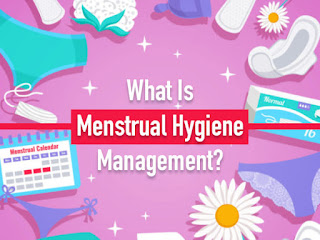Menstrual Hygiene and Waste Disposal
Menstruation is a normal biological
process which maintains the female reproductive cycle. Without this process,
there would be no ovulation and hence, no reproduction. Menstruation and
menstrual practices still face many social, cultural, and religious
restrictions which are a big barrier in the path of menstrual hygiene
management. This topic remains
elusive and is even considered taboo in different parts of the world. In
developing countries like India, women have to deal with menstruation secretly.
It has been found that little, inaccurate, or incomplete knowledge about
menstruation is a great hindrance in the path of personal and menstrual hygiene
management.
Girls and women have very less or no
knowledge about reproductive tract infections caused due to ignorance of
personal hygiene during menstruation time. In rural areas, women do not have
access to sanitary products or they know very little about the types and method
of using them or are unable to afford such products due to high cost. So, they
mostly rely on reusable cloth pads which they wash and use again.
Women have developed their own
personal strategies to handle this period of time. Globally, these strategies
vary greatly due to the personal preferences, availability of resources,
economic status, cultural traditions and beliefs, education status, and
knowledge about menstruation.
(1)
Disposal of
menstrual waste is of major concern as it affects health and environment. There
is a need for effective menstrual materials which needs less and cost-effective
management.
(2)
Dustbins should be covered by lid
and emptied from time to time to keep the toilets clean from flies, mosquitoes,
and bad odor.
(3)
Companies dealing
with manufacturing of sanitary pads or other articles should disclose the
information on the pads regarding the chemical composition of the pads so that
appropriate technologies could be used for their disposal and treatment.
(4)
Guidance
regarding menstrual management to adolescent girls and women is a much needed
step. Menstrual hygiene management should be an integral part of education
curriculum
(5)
Environment-friendly
chemicals should be used by manufacturers of sanitary products to stop soil and
water pollution and to fasten the decomposition process.




Comments
Post a Comment